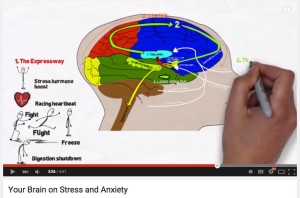Paul Canning, Karen Galway, Jean Nugent, School of Nursing and Midwifery,
Queens University Belfast
Year 2 BSc. Mental Health Nursing Student Volunteers
Mental Health Awareness week is a national campaign promoted by the Mental Health Foundation that runs every year in the month of May. Queens University Belfast (QUB) Staff Wellbeing Team plan and organise a range of events to compliment the national efforts taking place in work places, schools, hospitals and communities to promote positive mental health and challenge the stigma that can prevent people seeking appropriate support. This year the School of Nursing and Midwifery were invited to take part. Teaching staff in the School translated this offer into a learning opportunity for the mental health nursing students in year 2 of the BSc. Nursing programme to develop and facilitate an event.
Mental Health nursing students at QUB undertake a 3 year programme of theory and clinical practice placements. In year 2 the students focus on field specific mental health modules and learning. Staff from the mental health team initially liaised with the Staff Wellbeing Team to ascertain and agree an appropriate slot for hosting an event for all employees across the university. Consideration had to be given to the students’ academic workload, which at this time was considerable, being in the lead up to a very busy period of assessment. It was decided that in order to reduce undue pressure, students would be offered the chance to volunteer for involvement.
The proposal to develop a student-led session was presented to the students in class and followed up by an email, which was sent to all 48 year 2 mental health students as a way of providing further explanation of how the proposed event might be coordinated. A very enthusiastic group of 16 students attended the initial meeting facilitated by Paul Canning (Lecturer in the Mental Health Team). Students addressed two topics; anxiety and depression in the contemporary context of the use of social media.
The lunchtime session was well attended by university employees from a variety of settings and schools across the university. One session – ‘A student led session exploring contemporary themes related to anxiety and depression’ provided two linked presentations using a variety of audio-visual media, and contributed to a lively discussion with attendees afterwards. A good level of discussion ensued in relation to anxiety and depression and the wider challenges we face in overcoming mental ill health. The exploration of contemporary themes in relation to the use of social media was also well received. Presenting the contrast between the potential positive impacts and the potential negative impacts of our use (and abuse) of social media, on mental health and wellbeing proved to be an interesting approach taken by the students which struck a chord with attendees.
The Staff Wellbeing Team gathered email evaluations that supported the initial impressions gathered regarding expectations, the value of discussion time and recommendation of the event to others. Attendees also valued the knowledge of the student presenters and provided useful constructive criticism on the delivery of information. This feedback was also provided to the students who expressed a strong sense of achievement, and some relief!
Screenshot from the student presentation. Your Brain on Stress and Anxiety by John Kenworthy, available at: https://youtu.be/gmwiJ6ghLI
Reflection upon this project highlights the importance of supporting students to develop the broader skills and qualities of ‘graduateness’1 whilst studying. The independent nature of a student-led approach proved an excellent opportunity to develop and enhance skills such as; organisation, team work, public speaking, reflectiveness and problem solving, outside timetabled teaching and without the pressure of assessment. It also provided the students an opportunity to consolidate, demonstrate and practically apply their field specific learning2. These are skills that the students and their employers will value when entering their chosen profession of Mental Health Nursing. Student achievement in facilitating this session to the wider university staff body was then circulated via Twitter and Facebook.
Having successfully engaged with staff, the Mental Health Nursing students are now seeking to use this experience and confidence to consider how the session may be altered, enhanced and developed for the benefit of students studying at the university. Thought is also been given as to how students may fundraise to promote positive mental health and reduce stigma. We hope this will become an annual part of Mental Health Awareness Week at QUB.
References
- Freire, P. (1972) Pedagogy of the oppressed. London: Sheed & Ward.
- Hill, P and Tinker, A, (2013) Integrating Learning Development into the student Experience. Journal of Learning Development in Higher Education. Vol. 5 [Online] Available: http://www.aldinhe.ac.uk/ojs/index.php?journal=jldhe&page=article&op=view&path%5B%5D=172 [Accessed 26/6/15]
